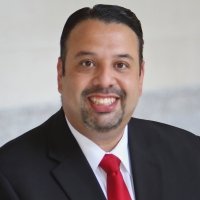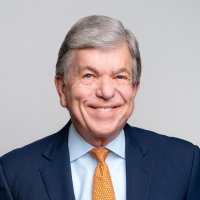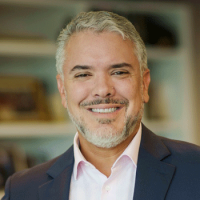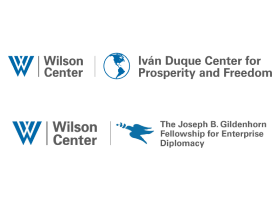Enterprise Diplomacy: Colombia FTA Case Study
Enterprise Diplomacy seeks to leverage innovation, private enterprise, and economic collaboration to advance American leadership and achieve diplomatic objectives. The growth of international trade has been one of the most important economic developments in modern times. It has improved the standard of living for countless people, brought products within reach of everyday consumers, and in many developing countries, has helped to lift more than one billion people out of extreme poverty.
The Joseph B. Gildenhorn Fellowship for Enterprise Diplomacy seeks to address these issues. Enterprise Diplomacy and trade has helped bring stability, security, and strengthen economic opportunities. One important case study to analyze is the US–Colombia Free Trade Agreement, which was signed on November 22, 2006 and entered into force on May 15, 2012. Thanks to this agreement, US goods and services trade with Colombia totaled an estimated $53.5 billion in 2022 and United States had a services trade surplus of an estimated $1.5 billion with Colombia in 2022.
Join us for a conversation on the importance of Enterprise Diplomacy and the role trade can play to reinvigorate our partnerships within the Western Hemisphere with our Joseph Gildenhorn Fellow former Senator Roy Blunt, former Colombian Foreign Minister Carolina Barco, and Chair of the Wilson Center’s Ivan Duque Center for Prosperity and Freedom, President Iván Duque.
Select Quotes
Eddy Acevedo
Chief of Staff and Senior Advisor to the President and CEO, Wilson Center
"In general, trade has improved the standard of living for countless people, brought products within reach of everyday consumers, and in many developing countries has helped to lift more than one billion people out of poverty. It is time to prioritize trade in our foreign policy."
H.E. Carolina Barco
Ambassador of Colombia to the United States (2006-2010)
Minister of Foreign Affairs of Colombia (2002-2007)
"One of President Uribe's first meetings with President Bush was to talk about the possibility of the FTA. Robert Zoellick, who was the USTR head, went down to Colombia...[and] said to President Uribe, this is very important but it's difficult, and just because we are friends we're going to have to work very hard to make this work for both of us."
"As we were negotiating and the ATPA had finished and we'd gone into ATPDEA, we were having to renew the ATPDEA every year which makes it very insecure; if you have an insecure environment, you don’t invest. The business sector wanted to have the security, and this was also just directed at trade and what we really wanted was investment."
Hon. Roy Blunt
Joseph Gildenhorn Fellow for Enterprise Diplomacy, Wilson Center
US Senator and Representative from Missouri (1997-2023)
"Colombia is our biggest single trading partner in South America; the Hemisphere matters a lot and...our relationships binding the Hemisphere together should be one of our priorities."
"We did have this period where, particularly under President Reagan, free trade was just seen as one of the fundamental freedoms; free trade led to the other freedoms being stronger."
Hon. William Brownfield
Distinguished Fellow, Wilson Center
Career Ambassador serving as US Ambassador to Chile, Venezuela, and Colombia (2001-2010)
"It took ten years, from time of start to time of final approval and implementation. Was it worth it? I would say a resounding yes. I would make this statement: the United States of America and the Republic of Colombia are better off still today for reason of this agreement."
H.E. Iván Duque Márquez
Chair and Distinguished Fellow, Iván Duque Center for Prosperity and Freedom, Wilson Center
President of the Republic of Colombia (2018-2022)
"The free trade agreement, in my opinion, has been maybe the most successful foreign policy the US has ever embraced with Latin America...It created stability, predictability, and the possibility to grow opportunities over time."
"What a free trade agreement does to a country that engages in long-term relations with the United States, it enhances freedom--economic freedom--and produces prosperity."
Hon. Mark A. Green
President and CEO, Wilson Center
"[The US-Colombia FTA] is not only bipartisan, bicameral, it's multi-administration. So at a time where there seems to be some doubt about trade prospects going forward, the Colombia experience shows that done the right way, done patiently perhaps, persistently, you can actually build a trade agreement that crosses certainly political lines."
Introduction

Keynote Speaker

Career Ambassador serving as US Ambassador to Chile, Venezuela, and Colombia from 2001-2010; former Assistant Secretary of State for Drugs and Law Enforcement
Moderator

Panelists


Chairman of the Leadership Strategies Advisory Services group at Husch Blackwell Strategies, Former US Senator and Representative from Missouri

President of the Republic of Colombia (2018-2022)
Hosted By

Wahba Institute for Strategic Competition
The Wahba Institute for Strategic Competition works to shape conversations and inspire meaningful action to strengthen technology, trade, infrastructure, and energy as part of American economic and global leadership that benefits the nation and the world. Read more

